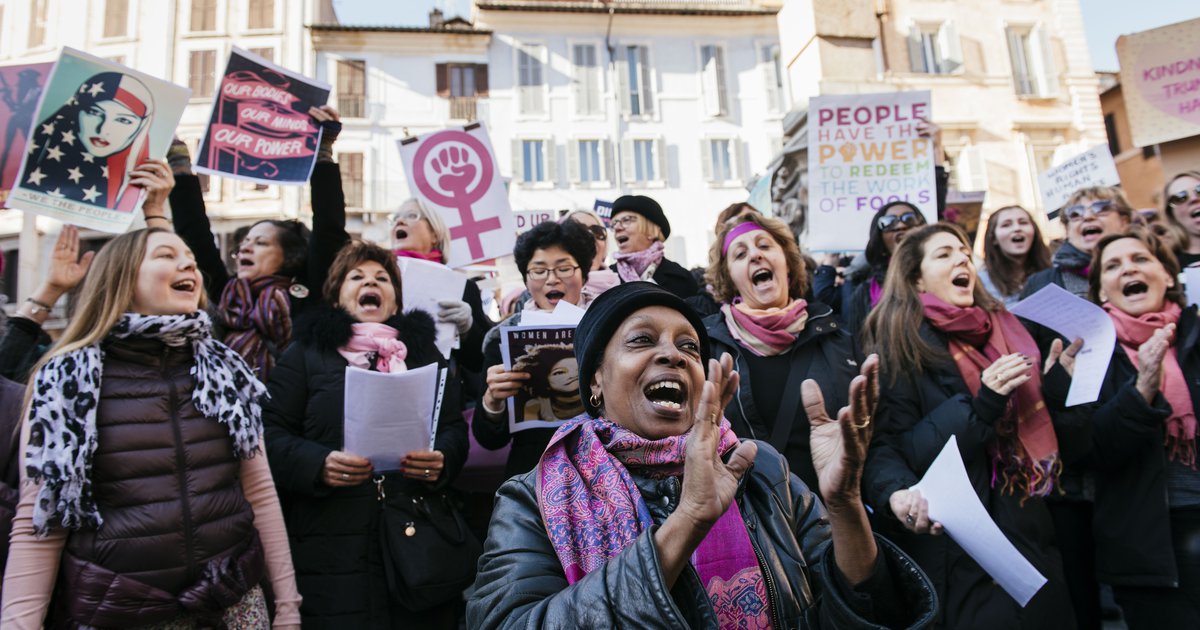
Simone Rafael from the Amadeu Antonio Foundation in Germany, which commissioned the research along with Swedish group Expo and HOPE not Hate (UK), called the scale of anti-feminist opinion in Europe “very worrying”.
Nick Lowles, CEO of HOPE not Hate in the UK added that, in many countries, an “anti-feminism agenda” is now “wrapped up in the growing right-wing cultural wars which is much more aggressive, quite violent rhetoric and is used particularly by younger men”.
State of Hate
The anti-extremism groups’ survey was commissioned as part of a new report entitled ‘STATE OF HATE: Far-right extremism in Europe’. It also revealed that at least a quarter of the survey’s respondents said they have negative feelings towards Muslim people.
Almost a third of respondents reflected hostile views towards immigrants generally and more than a third reflected such views of the Roma people.
“This report shows that the threat against democracy is changing form and strategy. The far-Right of today is a transnational movement that organises supporters through networks rather than old-fashioned organisations,” said Poohl, CEO of Expo.
Ahead of the 2019 European Parliament elections, openDemocracy uncovered how a dozen US Christian right ‘fundamentalist’ groups had poured at least $50m of dark money into Europe over a decade, boosting the far Right that was angling for record wins that year.
HOPE not hate’s Lowles said extremist ideologies are now “internationalised like never before” – and “resistance must be so, too”.
According to the survey, the majority of respondents in Hungary hold negative views towards immigrants (60%) and Muslim people (54%). These numbers are about twice as high as they are in the UK, where 30% hold such views of immigrants and 26% of Muslims.
When asked if they sympathised with Black Lives Matter protests against racism and discrimination against minorities, most respondents in Germany (52%), Sweden (51%) and the UK (51%) said they did. This was not the case in any of the other countries surveyed.
‘Deep mistrust’ of authorities
The report also highlighted a “deep well of mistrust” in authorities, adding that populists and extremists across Europe could attempt to exploit such an environment.
Political disenchantment was particularly pronounced in Italy and France, with 79% and 67% of respondents respectively saying that they thought their political system is wholly or partially broken. These figures were also high in Poland (63%), the UK (58%) and Hungary (55%).
“Europe’s far-Right and anti-democratic scene is connected in many ways nowadays – it is anti-Semitism, Islamophobia and white supremacy thinking that the far-right enemies of democracy agree on,” concluded Anetta Kahane, CEO of Amadeu Antonio Foundation in Germany.
This report, she argued, “makes the commonalities visible that we must fight together to protect democracy and human rights in Europe.”